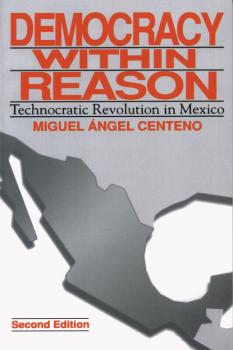ТОП просматриваемых книг сайта:
Miguel Angel Centeno
Список книг автора Miguel Angel CentenoАннотация
During the 1980s the Mexican regime faced a series of economic, social, and political disasters that led many to question its survival. Yet by 1992 the economy was again growing, with inflation under control and the confidence of international investors restored. Mexico was now touted as an example for regimes in Eastern Europe to emulate. How did Carlos Salinas and his team of technocrats manage to gain political power sufficient to impose their economic model? How did they sustain their revolution from above despite the hardships these changes brought for many Mexicans? How did they stage their remarkable political comeback and create their “democracy within reason”? Why did Salinas succeed in keeping control of his revolution while Mikhail Gorbachev failed to do so in his similar effort at radical reform? Miguel Centeno addresses these questions by analyzing three critical developments in the Mexican state: the centralization of power within the bureaucracy; the rise of a new generation of technocrats and their use of a complex system of political networks; and the dominance of a neoliberal ideology and technocratic vision that guided policy decisions and limited democratic participation. In his conclusion the author proposes some alternative scenarios for Mexico’s future, including the role of NAFTA, and suggests lessons for the study of regimes undertaking similar transitions. Of obvious interest to students of contemporary Mexico and Latin America, the book will also be very useful for those analyzing the transition to the market in other countries, the role of knowledge in public policy, and the nature of the modern state in general.
Аннотация
What role does war play in political development? Our understanding of the rise of the nation-state is based heavily on the Western European experience of war. Challenging the dominance of this model, Blood and Debt looks at Latin America's much different experience as more relevant to politics today in regions as varied as the Balkans and sub-Saharan Africa. The book's illuminating review of the relatively peaceful history of Latin America from the late eighteenth through the early twentieth centuries reveals the lack of two critical prerequisites needed for war: a political and military culture oriented toward international violence, and the state institutional capacity to carry it out. Using innovative new data such as tax receipts, naming of streets and public monuments, and conscription records, the author carefully examines how war affected the fiscal development of the state, the creation of national identity, and claims to citizenship. Rather than building nation-states and fostering democratic citizenship, he shows, war in Latin America destroyed institutions, confirmed internal divisions, and killed many without purpose or glory.


